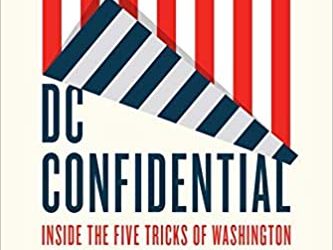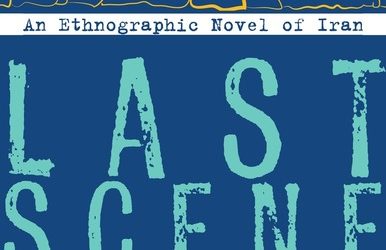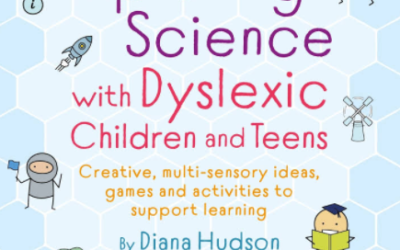"The fundamental wiring of the brain that causes dyslexia also enhances our ability to see the big picture..." - Attorney, Author, and Professor David Schoenbrod David Schoenbrod is a big picture changemaker. In fact, in his impactful life, he's been able to...
Dr Roxanne Varzi: Creative Anthropologist
I recently had the chance to talk to Dr Roxanne Varzi, a writer, anthropologist, and filmmaker who was also the first Fulbright Awardee since the Islamic Revolution for research in Iran. She's doing such interesting work that is creative on many levels that I...
Daydreaming While Reading [Premium]
“There are certain half-dreaming moods of mind in which we naturally steal away from noise and glare, and seek some quiet haunt where we may indulge our reveries and build our air castles undisturbed.” – Washington Irving Daydreaming holds a curious position in the areas of science. On the one hand, daydreaming has been seen as a negative, associated with inattention and poor task persistence, but on the other, associated with creative behavior and personal inspiration. Neuroscientists have taken a renewed interest in daydreaming because daydream pathways activate the default mode network, a brain network that is now known to be important for reflecting on one’s self as well as others, remembering the past, and imagining the future. Studies of dyslexic and non-dyslexic people […]
Exploring Science With Dyslexic Children & Teens
"The book begins by describing the strengths and weaknesses of creative thinkers who have dyslexia. It outlines the reasons that they may struggle in science and gives examples of specific areas of the school science curriculum that are often very challenging for...
Steven Erickson LEGO Master Season Two!
Congratulations to Steven Erickson and his brother Mark who won a coveted spot on the second season of Lego Masters to compete for $100,000. Steven and his brother Mark have long been known to the LEGO community. You can find Steven HERE. I have...
Writing: Elaboration [Premium]
If you were to compare dyslexic and non-dyslexic university students in writing, it’s usually the case, that on average, dyslexic students write fewer words and fewer words that are polysyllabic. The reasons are several; slowness with word retrieval, writing, and spelling, organizational challenges, and working memory overload are likely contributors. Because multisyllabic words are more challenging phonemically, not only are they harder to recognize and remember while reading, but also they are harder to spell. THE BIG PICTURE OF ELABORATION The big picture of elaboration is that you want writers to fall in love with words, whether it’s a beautiful passage evoking imagery, or funny turn of phrase, or incisive argument. Students who are the easiest to cultivate as great writers are those who […]
Clever Ways To Practice Repeated Reading [Premium]
It was in the late 1970’s that educational researchers began to question the practice of reading aloud different tasks as a way to make children more fluent readers. With this approach, every new day saw new challenges reading aloud for struggling readers so that they failed to gain proficiency, and if anything were more likely to develop a dislike or avoidance of reading. What actually showed greater success with reading fluency, was giving students repeated practice with the same passage. The general approach is to have a student or teacher pick a passage (a quote, poem, excerpt from a poem) that is 50-300 words long. The teacher or partner reads it aloud, then the student (echo reading). The goal is to have the student read […]
Literary Analysis: Great Dyslexic Book Reviewers [Premium]
I’m always on the look out for dyslexic strengths and advantages presented in new ways and I couldn’t help notice these two popular dyslexic book reviewers on YouTube. It’s beautiful seeing what they’re doing and there’s definitely a lot of complicated strengths that are showcased in their entertaining videos. The first example here is Merphy Napier’s literary analysis of the complicated character of Severus Snape. What an example of going deep into literary analysis and theory of mind! No wonder it’s so hard for many book-loving dyslexics (yes, they exist) to answer short answer questions. They are thinking and processing about so much. I wonder if it makes many dyslexic writers novelists rather than short prose writers. There are many paradoxes about the dyslexic mind […]
Resources For Reading Fluency [Premium]
Reading fluency is usually defined as an ability to read easily with little effort…with good accuracy, speed, expression, and comprehension. Reading fluency practice doesn’t take the place of decoding work, but it can be an important step that makes it likely that a person will become a lifelong reader. Strategies to improve reading fluency are many, including choral reading, echo reading, reading along with audiobooks, readers theater, sentence trees and more. As April Karl describes in the video below, reading books with repetitive text can also give student practice at reading words with a different tone. The second video below is an example from McGraw Hill showing older students implementing practices like choral reading, Reader’s Theater, and paired reading in small groups. Some researchers […]
Legendary Sea Explorer Dr. Robert Ballard
"I grew up wanting to be Captain Nemo from 20,000 Leagues Under the Sea..." "I wish everyone recognized that dyslexia has its advantages." - Robert Ballard It's not just Bob's accomplishments that make his autobiography so compelling, but his focus, resilience,...
Sneaky Free Ways To Get Kids Reading [Premium]
We all know the drill – we want kids to read so that reading gets easier so it’s more fun to read, but it’s too hard to read now, so they don’t read, there’s no practice, and reading comes to a standstill. So how can we get them to read? HELP THEM FIND THE RIGHT BOOK AT THE RIGHT LEVEL In order for students to enjoy reading, a book should be at the right level for their interest, but also right level for their current reading level. FINDING THE LEXILE LEVEL THEN SELECT THE ‘JUST RIGHT’ BOOKS IN YOUR PUBLIC LIBRARY It’s estimated that almost 1/2 of public school children have been assigned a Lexile Level based on their most recent […]
In Memoriam: Patience Thomson
"Thomson played a leading role in the slow transition from the condition being perceived as a learning difficulty to the championing of many dyslexic children as creatively gifted. She liked to recall showing a child a picture of a dinosaur and asking him what letter...



![Daydreaming While Reading [Premium]](https://www.dyslexicadvantage.org/wp-content/uploads/2021/08/daydream-400x250.jpg)


![Writing: Elaboration [Premium]](https://www.dyslexicadvantage.org/wp-content/uploads/2019/09/Screen-Shot-2020-01-02-at-9.39.30-PM-400x250.png)
![Clever Ways To Practice Repeated Reading [Premium]](https://www.dyslexicadvantage.org/wp-content/uploads/2021/06/Repeated-Reading-400x250.png)
![Literary Analysis: Great Dyslexic Book Reviewers [Premium]](https://www.dyslexicadvantage.org/wp-content/uploads/2021/06/Book-Reviewers-400x250.png)
![Resources For Reading Fluency [Premium]](https://www.dyslexicadvantage.org/wp-content/uploads/2021/05/Reading-Fluency-2-400x250.png)

![Sneaky Free Ways To Get Kids Reading [Premium]](https://www.dyslexicadvantage.org/wp-content/uploads/2019/08/strength.jpg)














